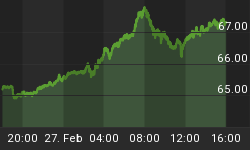As another G20 meeting rolls around, this time on home soil, the time comes once again for the economically curious but politically unconnected to wonder what is really happening behind closed doors. But while admiring the pageantry, chuckling at the awkward group photos, and parsing the joint communiqués like newly found Dead Sea scrolls, the overwhelming majority of observers will miss the meeting's dominant theme: hypocrisy.
Everyone agrees that the principal agenda item in Pittsburgh will be the need to rein in the 'global imbalances' that created the late economic crisis. Everyone also agrees that these imbalances involve too much spending and borrowing by Americans and too little of both by the Chinese and other developing nations. In his remarks this week at the United Nations, President Obama used his peerless rhetorical skill to frame the issues clearly and plainly. Noting that a return to pre-crisis economics is impossible, the president assured the world that his administration will pursue policies to increase savings and decrease spending at home and challenged his Chinese counterparts to enact measures with the opposite effect in their own country.
While this is roughly what needs to happen, President Obama is actually doing everything in his power to prevent it. In point of fact, every policy move undertaken by his administration has exacerbated the very imbalances he supposedly wants to curtail. To so seamlessly profess one goal while simultaneously undermining it is an impressive piece of political theater. Unfortunately, this particular drama is likely to have an unhappy ending - and the ticket price will be staggering.
What exactly are the federal fiscal stimuli other than deliberate, but clumsy, efforts to get people, companies, and governments to spend money they don't have? Programs like tax credits for new homebuyers or 'cash for clunkers' are intended to encourage consumers to spend money that they otherwise might have saved. Grants to municipalities allow them to hire workers and spend money locally that they otherwise would have forgone.
Federal intervention in the mortgage and credit card debt markets, where they are now nearly the sole buyer, has been specifically undertaken to keep interest rates low and financial firms solvent - so that Americans can keep buying homes and using their credit cards. While the Fed will continue to hand out free money to any and all borrowers for an "extended period," the abysmally low interest on deposits that such a policy creates disincentivizes personal savings even further.
In 2009, despite the tilted playing field, the American people have heroically managed to increase their savings (although clearly not as much as they would have in a free market). But President Obama's runaway deficit spending is undermining their efforts. The simple truth is that government debt is our debt. So if a family manages, at some cost to their lifestyle, to squirrel away an extra $1,000 in saving this year, but the government adds $20,000 in new debt per household (each family's approximate share of the $1.8 trillion fiscal 2009 deficit), that family ends up owing $19,000 more than they did at the beginning of the year!
So much for our end of the bargain. How about on the other side of the Pacific? Will the Chinese restore balance by increasing their spending? How can they while they are lending us all their money? Remember, any money the Chinese spend is money they cannot loan to us. So, if China really wanted to spur domestic consumption, the best way to do so would be to stop buying our debt. Even better, they could sell Treasuries they already own and distribute the proceeds to their citizens to spend.
However, the Obama administration is heavily lobbying the Chinese to get them to step up to the plate and buy record amounts of new Treasury debt. Obama cannot have it both ways. He cannot claim he wants the Chinese to spend more, but then beg the Chinese government to take money away from Chinese consumers and loan it to the United States Treasury.
In the end, Obama will get precisely what he publicly claims to desire but privately dreads. The Chinese government will come to its senses and stop buying Treasuries. This will cause the U.S. dollar to collapse, but it will also allow Chinese citizens to fully enjoy the fruits of their labor.
Once the Chinese begin consuming more of their own products, those products will no longer be available to Americans. Once they start spending more of their incomes on themselves, those funds will no longer be available for us to borrow. Unfortunately, that is when our real economic crisis will begin. The worst part is that the longer these imbalances are allowed to continue, the larger they grow and the more painful the ultimate adjustment process becomes.
But for now, it's all pomp, circumstance and hypocrisy in Pittsburgh. Why yes, Madam Finance Minister, I'd love another of those crab cakes!
For a more in-depth analysis of our financial problems and the inherent dangers they pose for the U.S. economy and U.S. dollar, read Peter Schiff's 2008 bestseller "The Little Book of Bull Moves in Bear Markets" and his newest release "Crash Proof 2.0: How to Profit from the Economic Collapse." Click here to learn more.
More importantly, don't let the great deals pass you by. Get an inside view of Peter's playbook with his new Special Report, "Peter Schiff's Five Favorite Investment Choices for the Next Five Years." Click here to dowload the report for free. You can find more free services for global investors, and learn about the Euro Pacific advantage, at www.europac.net.















